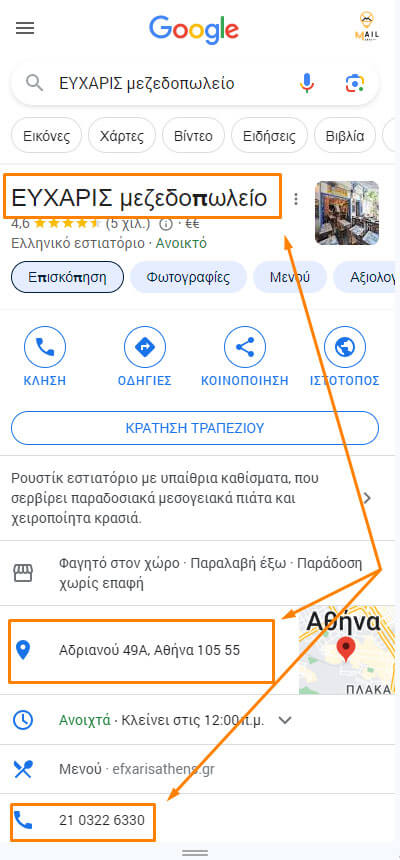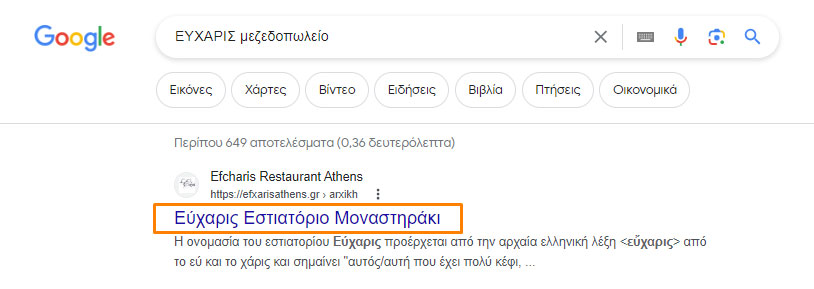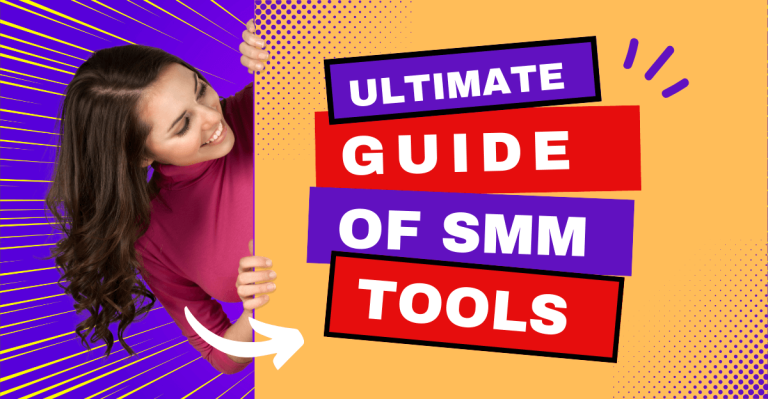Content creation (4/10)
In this fourth lesson on Local SEO, we're going to talk about local content.
Website content has always been one of the main factors in SEO – obviously, you can't rank for a keyword if you don't have relevant information on your website.
Google has evolved from simple keyword matching to search based on semantic content, and Local SEO has always been based on the intent behind the user's search. However, the old tactic still holds true - for any keyword phrase you want to rank for, you need a page on your site about that concept.
All technical elements are also important. You need clean, concise code on your page. You need to make sure you don't have broken links or missing images. You need your site to load quickly.
But we're here to talk specifically about Local SEO, so let's talk about the elements that differ from traditional SEO.
Local SEO and NAP (Name - Address - Phone)
Local SEO has always been entity focused and one of the most important entity elements of your business is your NAP - your name, address and phone number. The most basic way to prove that a business exists in a particular location is to look at the physical address.
NAP information should be clearly displayed on every page of the site. This isn't just an SEO tactic, it's important for your user experience as well. If someone wants to call you or find out where you are to be able to find directions, you should have your NAP details front and center so they don't have to look for them.
You should also make sure that your NAP information is filled in correctly. If you are not familiar with schema markeup, it is the code used to help sort your site's information. There is a specific type of schema markup for local businesses, with specific secondary types for most industries. If you want more information about the schema, go to schema.org/LocalBusiness for a detailed explanation.
It is incredibly beneficial to display a local phone number. Call tracking can make it a little more complicated, so let's look at a few scenarios. If you use dynamic phone numbers - usually called DNI - the javascript will be activated once the page loads and will change the phone number to a tracking number based on the referral source. As long as your actual local number is the default number that is encoded on the page BEFORE the javascript is activated, you should be fine.

Valuable content
To be clear, Content must be really valuable for your area. Most businesses only worry about their content being unique, which is not a good idea as a singular goal. Anyone can write unique content, but that doesn't necessarily relevant or useful. If you write content that is actually useful to your customers AND make sure it's useful for local searches in your area, you'll be unique without having to try.
Having local content doesn't just mean mentioning the name of your city in the text every few sentences - talk about truly local content. When you mention local landmarks in your instructions or talk about local events you're involved with or mention your city in natural conversation text - then you have real local content.
The biggest content tip we can share with you is to read your content out loud. Your content should be interactive and narrative - everything on your site should sound like something you would say face-to-face to a customer who just walked through your front door.
When you read your content aloud, you will hear awkward phrases that you wouldn't necessarily understand otherwise.
Stand out from the crowd
It is important to write why you are the best choice - no one buys from the first result they click on in Google search results. You know that potential customers will also be checking out your competitors, so make sure you impress anyone who sees your local business online.
Don't use the generic marketing content you see in every business. No one will simply believe that you treat customers like family or that you have the lowest prices and the best customer service. Consider what makes you truly unique - why are you so amazing that anyone who knows you wouldn't even consider going to a competitor? That's what you need to have in your content.
Optimization for the local algorithm
Once you've written your amazing local content, it's time to make optimization for the local algorithm.
So here's what you need to do: Start with your title - it's the SEO element with the most weight on the page and is what appears in the tab where you enter the URL in your browser. It is also the one that is marked in bright blue when you appear on a search results page.

Make sure you use the keyword phrase that relates to the meaning of the page and include the keyword phrase of your site. You should never put your business name first, as you can see in the image - you are the only business with that name, so you will always rank first for that search. The most important thing is that you are a restaurant. This is what tens of thousands of users in Athens are looking for. So why not "Restaurant Monastiraki Eucharis?" Don't waste valuable optimization space. If you want to include the name of the company you, put the at the end of the title label.
The H1 header is the second most important SEO element on the page. It is the big headline above your text area. You should have only one H1 on your page - if you have parsed your text with other sub-headings, make sure you use H2 or H3. It is important to use the same keyword phrase you used in your title tag and also include your location keyword phrase. Keep your H1 short and relevant, but make it as engaging as possible.
Your content is obviously important - but if you've written truly local content, you'll already have your site's keywords in your text, so you don't need to do any additional optimization.
Image alt text
To be clear, alternative image text is the next area to pay attention to and is something that most business owners and many marketers don't optimize or even include on their websites. If you're not familiar with it, alternative text is an element of code that refers to the image itself. It's a behind-the-scenes description of the image. Years ago, Google wasn't able to discern what an image contained, so alternative text helped Google understand how your images related to your content. Now, it's really creepy how well Google's machine learning systems can interpret what's in an image, but the alternative text is still part of the algorithm. Image descriptions should be short and precise, but you should include your location keywords where possible to boost your ranking by relevance to that location.
SEO-friendly URLs
Most website platforms out there allow you to set custom URLs for your pages. Whenever possible - and when it makes sense - you should include location keywords in your URLs. For example, a tavern website in Alimos, Attica usually has a URL that looks like domain.gr/alimostavernattiki. It would be much better to have something like domain.gr/taverna-alimos-attikis. Remember that the important words as we said we put first. It's a better signal for search engines AND it's easier for people to read and understand.
Keep in mind, if you're going to go and change your URLs to be more optimized, you need to be careful - you need to update any internal links, otherwise users will click and be redirected to pages that don't exist. This will give the impression that the site is not working properly. Why would they think anything different is true for the business? You'll also want to check for any external links pointing to the pages you're changing. If you have an inbound link pointing to a page and you change the URL, you lose the value of the link because it now points to a page that doesn't exist. You will need to configure 301 redirections to preserve the value of these links.
Meta description
It is also useful to use the key phrase of your location in your meta description. Meta description is code on the back of the site that fills in the 3 or 4 grey sentences below your blue link when you appear in Google search results.

Keep in mind that the meta description has absolutely nothing to do with the ranking algorithm, so keywords will do nothing here. BUT, since it complements your link description, you should think of it as a Google Ads copy and write something compelling that will get more people to click on your site. Including your site's keywords will help show that you are a local business and possibly increase your click-to-view ratios. So indirectly it plays a big role as the more often they click on you for a particular search result, the higher Google will move you up in its rankings.
Create a Blog
It is also incredibly important to have a blog. If your site runs on WordPress, it's easy, since the blog is an integral part of your site. If you have another CMS or support system that doesn't include a blog component, you'll need to talk to your website team or marketing company and set one up. It's best to have your blog set up in a subfolder so it's something like yourdomain.gr/blog. If your server or some technical limitations make it impossible, you can set up your blog as a subdomain, so it will be something like blog.yourdomain.gr.
Why a blog is so important; You are an expert in your field and have a lot of knowledge to share with the local community. Having a blog allows you to share information that doesn't necessarily fit into the structure of your site's main menu.
It also allows you to add more local content. Your blog doesn't have to be all about you and your business. Share information about the area and make your blog an attractive local destination. If you only write about what you sell, your content is only relevant to the small segment of the local audience that wants to buy from you right now. If you expand your subject matter and share useful local information, your content is relevant to a much wider audience. You'll be able to expose yourself to people who don't want to buy - but when they're ready, they're more likely to buy from you because they already know you.
Local content
For your local blog posts, share anything useful about the area. Community news, local events, local interviews - these are all great topics. If you're sponsoring a local event, you can write about the event before it happens to share information about it and then write a recap after the event to tell people what happened. Write about your favorite local restaurants, bars or anything in the community - these top 5 local business posts always work well.
As you continue to write more local content, you will create more local relevance, which helps you show up more often in local searches.
Creating content for local SEO: Course Summary
This was the fourth lesson on Local SEO and how to create content that will help you stand out. We hope you learned something useful for your own business. In the next lesson, we will analyze the importance of online entries of your business.
For any questions you can contact us.

If you need help understanding how we could help your local business by creating content, we are at your disposal. With no obligation, we can do a free consultation session and suggest improvement strategies so that even more of your customers discover you.



